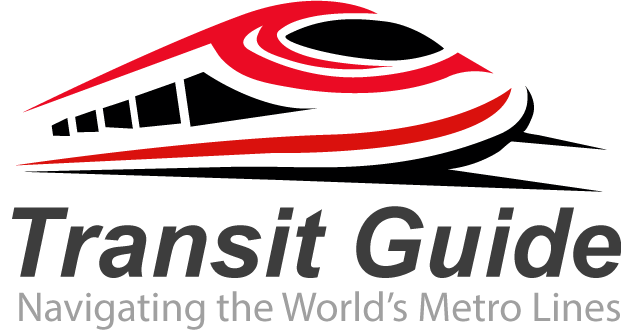The Nairobi Commuter Rail (NCR) represents a transformative shift in urban transportation for Kenya’s capital city and surrounding metropolitan areas. As part of the comprehensive Nairobi Metropolitan Transport Master Plan, this modern rail network offers residents and visitors an affordable, reliable alternative to the city’s congested road network.
What is Nairobi Commuter Rail?
The Nairobi Commuter Rail is a modernized railway network serving Nairobi and its suburbs, designed to reduce traffic congestion while providing safe, efficient mass transit. Officially inaugurated on November 10, 2020, by then-President Uhuru Kenyatta, the NCR has become an integral part of the city’s transportation infrastructure.
The system currently operates five main lines connecting 22 stations throughout the Nairobi metropolitan area. With an average daily ridership of over 7,300 passengers as of 2023, the service continues to grow in popularity among commuters seeking cost-effective transportation options.
Current Routes and Stations
The NCR network encompasses several key routes serving different areas of Nairobi:
Northern Route (Nairobi-Ruiru Line): This popular route connects Nairobi Central Station to Ruiru, serving stations including Kenyatta University, Kahawa West, Githurai, Mwiki, Dandora, and Mutindwa. This line is particularly valuable for commuters traveling to and from the rapidly developing northern suburbs.
Eastern Routes: The system serves Embakasi Village (13km from Nairobi) and connects to Syokimau, providing crucial links to the eastern parts of the metropolitan area. These routes include stops at Donholm, Pipeline, and Makadara.
Western Connections: Services extend to areas like Kikuyu and include plans for expansion to Limuru, supporting commuters from Nairobi’s western corridors.
Schedule and Operating Hours
The Nairobi Commuter Rail operates on a structured schedule designed to accommodate peak commuting hours. Morning services typically begin around 6:00 AM, with trains departing at regular intervals to ensure commuters reach the city center by traditional business hours. Evening services are scheduled to facilitate the return journey for workers and students.
Recent schedule updates for 2025 include enhanced morning and evening services on key routes including Embakasi, Syokimau, Limuru, Lukenya, and Ruiru, ensuring reliable service for both early risers and evening commuters.
Ticket Prices and Payment Options
The NCR offers competitive fare structures that make it an attractive alternative to other forms of urban transport. Pricing varies based on distance traveled and specific routes, with the system designed to be accessible to a broad range of income levels throughout Nairobi’s diverse population.
Passengers can purchase tickets at station facilities, and the system continues to modernize its payment methods to improve convenience and efficiency for regular commuters.
Future Expansion Plans
The Nairobi Commuter Rail is undergoing significant expansion through a phased development approach:
Phase 2 Expansion: Plans include extending commuter services to Limuru, Lukenya, and Thika, dramatically increasing the system’s reach and capacity.
Phase 3 Development: Future routes will connect areas such as Kangemi, Kiambu, Kiserian, Ngong, Ongata Rongai, and Ruai, creating a comprehensive metropolitan rail network.
New Infrastructure: Ongoing upgrades include new stations at Donholm, Buru Buru, Umoja, Pipeline, and Githurai, which are part of a larger infrastructure development initiative.
A significant milestone was reached in December 2023 when President William Ruto launched construction of the new Riruta-Ngong line, which will serve stations at Riruta, Karen, Bulbul, and Ngong, with future extensions to Kiserian.
Benefits for Commuters
The Nairobi Commuter Rail offers numerous advantages over traditional road-based transportation:
Traffic Congestion Relief: By providing an efficient alternative to road travel, the NCR helps reduce the number of vehicles on Nairobi’s busy streets.
Cost-Effective Transportation: Rail travel typically offers better value compared to private vehicle operation or multiple daily matatu rides.
Reliability: Unlike road transport, which can be significantly affected by traffic jams and weather conditions, rail services operate on predictable schedules.
Environmental Benefits: Mass transit reduces per-capita carbon emissions and contributes to improved air quality in urban areas.
Integration with Other Transport: The system is designed to integrate seamlessly with road and air transport, including connections to major transportation hubs.
Getting Started with NCR
For first-time users, boarding the Nairobi Commuter Rail is straightforward. Stations are clearly marked, and schedules are posted at each facility. The system operates modern Diesel Multiple-Unit (DMU) trains that provide comfortable, safe transportation for passengers of all ages.
The NCR represents more than just a transportation system; it’s a cornerstone of Nairobi’s urban development strategy, supporting economic growth while improving quality of life for residents throughout the metropolitan area. As expansion continues, the network will become an increasingly vital component of daily life in Kenya’s capital city.
